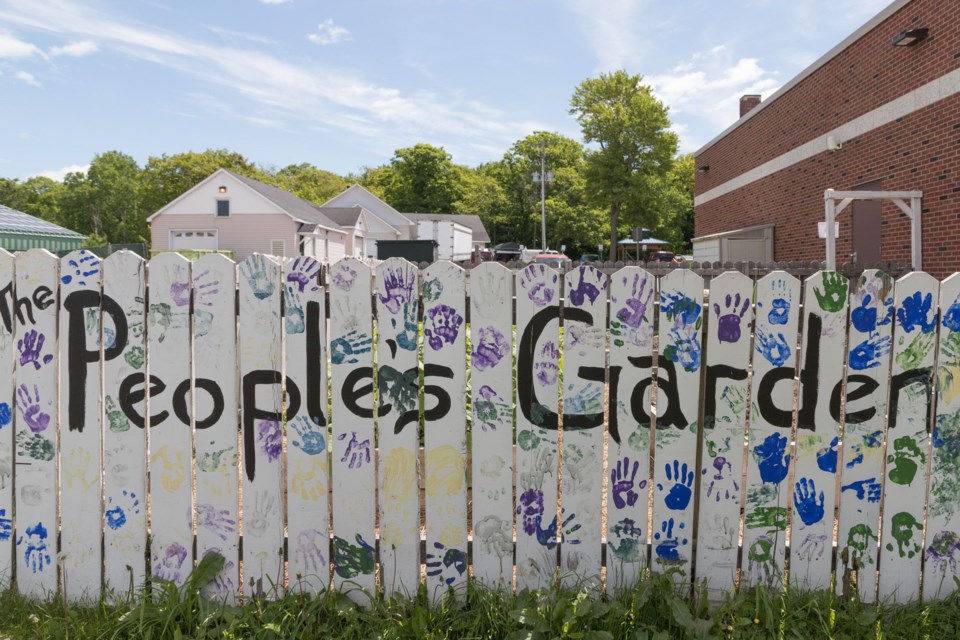Prior to COVID-19 setting in, it was known that with the overall cost and stress of attending university, students often fell into the demographic of food insecurity.
The People's Garden was born in 2013 with this recognition with the goal to help provide food security and assistance to those students who may need it.
It began as a project undertaken by those enrolled in the Community Economic and Social Development program, 'Environment and Community Resilience', through the University. Each year, student groups enrolled in the course at Algoma University are required to produce a practical project that promotes community resilience with environmental sustainability in mind.
The garden is located on the Algoma University campus. This year's project leader is Johnathan Lalonde who has been working with the garden and student/volunteers for a number of years. The purpose of the garden is to provide healthy and accessible fruits and vegetables to the students and employees of Algoma University.
Each year, a new coordinator provides guidance and rounds up the volunteers to make it happen, however, it is not mandatory that the students volunteer to care for the garden.
"The growth and participation really changes year to year. I was the student coordinator in the 2018-2019 school year and there were days it was just me and one or two other people out there, and days I had 10 - 15 volunteers. The days where I found the most interaction was when we were planning a specific event. For example, our spring planting BBQ, or when we hosted a fall potluck style Harvest Dinner and students came out to the garden to help harvest and use garden vegetables towards their potluck dish," said Jordan Lipscombe, previous student coordinator.
"The People's Garden is a bit different from others I have seen in the community in that the concept isn't so much to rent out plots to community members to do their own thing (although we always welcome the community to come and work with us!!), rather, it's more of a collective effort of students and staff where we work together, plan what to grow together, and harvest together."
"We have 13 raised garden beds and various smaller pots where you might find things like strawberries, blueberries and herbs. We also work closely with Clean North here in the Sault, they have been a huge help in supporting what we do," said Lipscombe.
Students do not need to be a volunteer to access the food. Although the exact number of students remaining in dorms is not known, it is believed to be estimated at 60.
"Some of the students are international students and were stuck here when Covid-19 hit and the university closed their doors. The Food Pantry and the People's Garden are working together to supply food for students on campus and also in the community. Some students don't have jobs or, their summer job was affected due to COVID-19 so we are trying to alleviate some of the financial burdens by providing food. There is also the Emergency Fund that Algoma University set up to help students who are eligible to apply. The university has also made some partnerships with outside organizations for assistance," said Johnathan Lalonde, current coordinator.
This year, there are safe practices in place, including signs posted outside the garden.
"We have about 10 volunteers signed up for the summer. We recommend that people wear masks if they are comfortable to do so and remember to wash their hands before and after gardening. The People's Garden coordinator and The Food Pantry coordinator will be delivering food to students if they can not come to the university to pick up," he said.
Do you have a local story about food? Let us know at [email protected]



